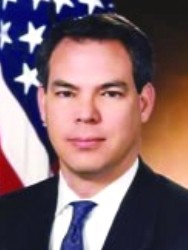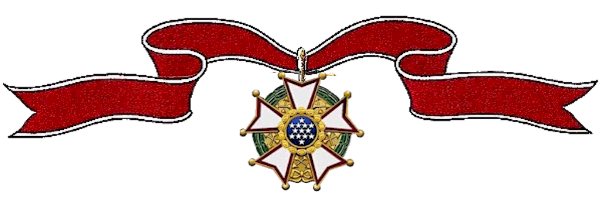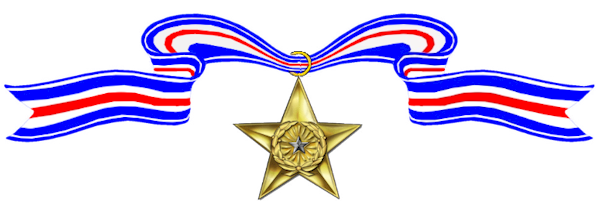Bert Mizusawa graduated from the U.S. Military Academy at West Point, Class of 1979.

Awards Received
-

Legion of Merit
-

Silver Star
-
Legion of Merit
Service:
United States ArmyRank:
Brigadier GeneralAction Date:
July 2005 – August 2008
Permanent Order #203-02 (July 21, 2008)The President of the United States of America, authorized by Act of Congress, 20 July 1942, takes pleasure in presenting the Legion of Merit to Brigadier General Bert Kameaaloha Mizusawa, United States Army, for exceptionally meritorious conduct in the performance of outstanding services to the Government of the United States as the Deputy G-3/5, Headquarters, U.S. Army Materiel Command, from July 2005 to August 2008. His unparalleled professional excellence provided both the Army and the joint community with bold strategic solutions not only to our acute wartime challenges, but to chronic peacetime problems as well. He accomplished a myriad of tasks resulting in the maturation of the Command and flawless support to the Global War on Terrorism. His contributions in this broadly diverse assignment are characterized by the highest level of technical expertise, sage advice to superiors, and stellar leadership. Brigadier General Mizusawa’s achievements, dedication and exemplary performance of duty are in keeping with the finest traditions of military service and reflects great credit upon himself, the U.S. Army Materiel Command, and the U.S. Army.
-
Silver Star
Service:
United States ArmyRank:
Captain (Infantry)Division:
United Nations Command Security ForceAction Date:
November 23, 1984
The President of the United States of America, authorized by Act of Congress, July 9, 1918 (amended by act of July 25, 1963), takes pleasure in presenting the Silver Star to Captain (Infantry) Bert Kameaaloha Mizusawa, United States Army, for exceptional valor and gallantry in action while serving as Commander of the Joint Security Force Company, United Nations Command Security Force at Panmunjom, Korea, on 23 November 1984. In reaction to thirty attacking North Korean soldiers in pursuit of a Soviet defector, Captain Mizusawa’s outstanding leadership and aggressive actions in leading his company while under fire were instrumental in defeating the enemy. Additionally, he personally led the defector to safety while under fire and deliberately, at great risk to himself, exposed himself to the enemy in front of his own troops to ensure the success of his company’s combat action. Throughout the intense firefight, Captain Mizusawa displayed a complete disregard for his own personal safety while accomplishing his mission. Captain Mizusawa’s bravery and outstanding leadership under extremely hazardous circumstances are in keeping with the finest traditions of military heroism and reflect great credit upon him, the United Nations Command and the United States Army.
NARRATIVE FOR SILVER STAR RECOMMENDATION:
For exceptional valor and gallantry in action while serving as the Commander of the Joint Security Force (JSF) Company, United Nations Command Security Force at Panmunjom, Korea on 22 and 23 November 1984. Captain Mizusawa’s personal leadership of the JSF soldiers in Panmunjom on the night of 22 November was instrumental in repulsing several North Korean infiltrators. On 23 November, in reaction to thirty attacking North Korean soldiers in pursuit of a Soviet defector, Captain Mizusawa’s outstanding leadership and aggressive actions in leading his company while under fire were essential to defeating the enemy and ensuring the safety of the defector and other personnel in the United Nations Command sector of the Joint Security Area (JSA). From the moment he received the alert notification that shots were being fired in the Joint Security Area, Captain Mizusawa’s courage, ability, and audacity established conditions that enabled the JSF to defeat the vaunted North Korean guard force and secure the defector with minimal friendly casualties. Captain Mizusawa’s swift, skillful reaction to the alert notification and personal heroism in leading the QRF into Panmunjom saved the defector’s life. Captain Mizusawa was notified by the Operations Officer shortly after 1140 hours that shots were being fired in the JSA and directed to assemble the QRF without activating the siren. Once the bulk of the platoon was assembled, he quickly briefed the senior NCO, a squad leader, and personally led the QRF in a rapid road movement to the JSA, two kilometers distant. Dismounting immediately outside the JSA, Captain Mizusawa led a rapid flanking maneuver that brought the QRF onto the right flank and rear of the main North Korean force that was attempting to locate and kill or capture the defector while engaging the JSF security platoon manning the JSA. As the QRF was completing this maneuver and beginning to engage the enemy force, the lead squad uncovered an unidentified civilian a short distance from the enemy. After a hasty search determined that the civilian was an unarmed Soviet defector, Captain Mizusawa took personal custody of him, moved him to a covered position, and then turned him over to the QRF platoon sergeant for evacuation from the JSA. Without Captain Mizusawa’s personal leadership of the bold, rapid movement from Camp Kitty Hawk and into the flank of the North Korean force, it is likely that the communist force would have reached the defector first. Once the defector was safely en route out of the JSA, Captain Mizusawa exposed himself to mortal danger to direct the fire and maneuver of his two engaged platoons. His decisiveness, personal heroism and leadership were the key to the victory. He moved a squad and some machine guns to a commanding position that supported both platoons’ positions and returned to direct the close-in encirclement of the enemy force by the QRF. The surprising appearance and aggressive maneuver of the QRF, a direct result of the personal leadership of Captain Mizusawa, led the enemy force to request a cease-fire and permission to evacuate casualties from the United Nations Command in Seoul. United Nations Command in Seoul ordered a cease-fire as the QRF was completing its encirclement of the enemy. Without a moment’s hesitation, Captain Mizusawa directed a sweep of the southern sector of the JSA and moved it forward of all friendly forces to the Military Demarcation Line or border with a small security element to lodge an immediate, formal protest of the North Korean aggression. This courageous move, only a short distance from where the same North Korean guard force had murdered a previous JSF commander and executive officer with axes in 1976, was accomplished before the enemy had completely regained control of its withdrawing forces and assessed their casualties. It was a key element in establishing the legitimacy of the United Nations response to the attack. As eyewitness testimony attests, Captain Mizusawa exposed himself to the extreme dangers of enemy fire and the threat of personal assault to accomplish his mission. His personal courage and command presence in the midst of the uncertainty and havoc of this intense fight galvanized the successful response of the Joint Security Force soldiers, who killed four enemy soldiers and wounded several others while suffering only one KIA and one WIA. Captain Mizusawa’s bravery and outstanding leadership under extremely hazardous circumstances are in keeping with the finest traditions of military heroism and reflect great credit upon him, the United Nations Command and the United States Army.

